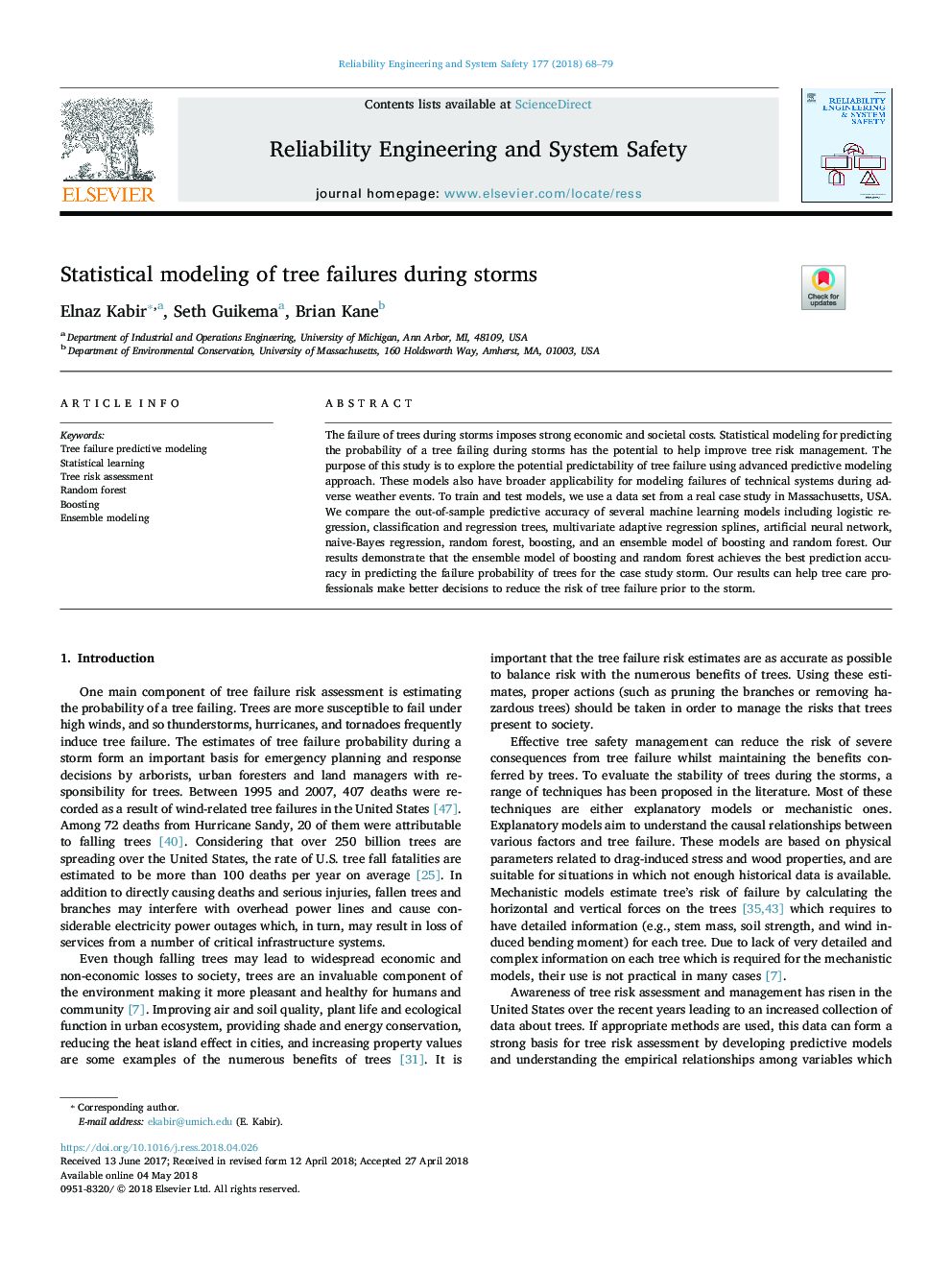| Article ID | Journal | Published Year | Pages | File Type |
|---|---|---|---|---|
| 7195113 | Reliability Engineering & System Safety | 2018 | 12 Pages |
Abstract
The failure of trees during storms imposes strong economic and societal costs. Statistical modeling for predicting the probability of a tree failing during storms has the potential to help improve tree risk management. The purpose of this study is to explore the potential predictability of tree failure using advanced predictive modeling approach. These models also have broader applicability for modeling failures of technical systems during adverse weather events. To train and test models, we use a data set from a real case study in Massachusetts, USA. We compare the out-of-sample predictive accuracy of several machine learning models including logistic regression, classification and regression trees, multivariate adaptive regression splines, artificial neural network, naive-Bayes regression, random forest, boosting, and an ensemble model of boosting and random forest. Our results demonstrate that the ensemble model of boosting and random forest achieves the best prediction accuracy in predicting the failure probability of trees for the case study storm. Our results can help tree care professionals make better decisions to reduce the risk of tree failure prior to the storm.
Related Topics
Physical Sciences and Engineering
Engineering
Mechanical Engineering
Authors
Elnaz Kabir, Seth Guikema, Brian Kane,
